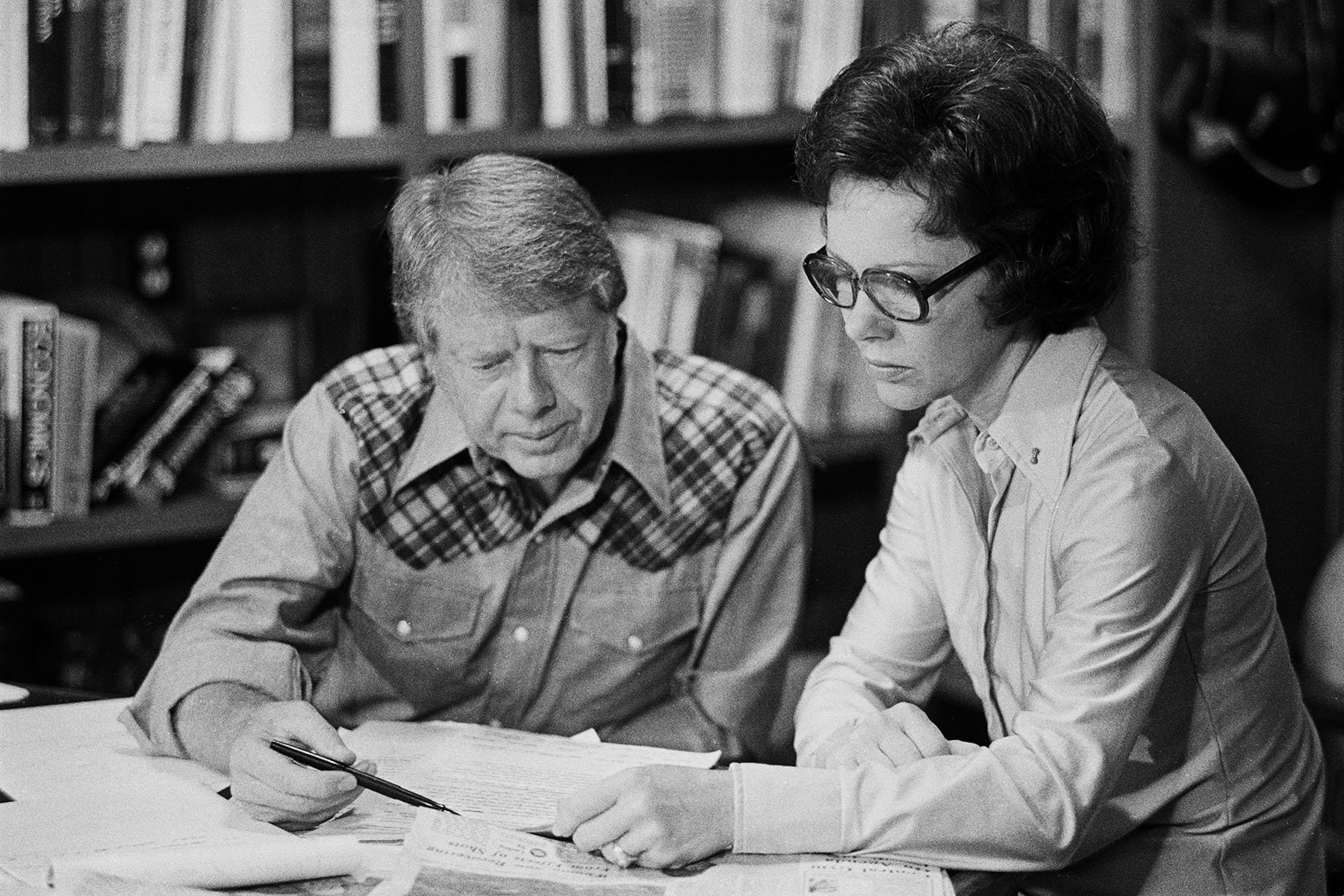By Mariel Padilla and Mel Leonor Barclay Originally published by The 19th
Many Americans have flocked to the U.S. Capitol this week to pay their respects to former President Jimmy Carter, who died on December 29 at the age of 100. A cornerstone of the 39th president’s legacy is his fight for gender equity. For decades, Carter championed women and girls through his domestic policy and global advocacy work — and even channeled his values to advocate for gender equity in his church denomination.
“Knowing the world as I do, I can tell you without any equivocation that the number one abuse of human rights on Earth, strangely not addressed quite often, is the abuse of women and girls,” Carter said in a 2015 TED Talk in Monterrey, California.
Elected in 1976, Carter became president at a pivotal moment for the women’s rights movement. He championed the Equal Rights Amendment, which would explicitly prohibit sex discrimination in the Constitution, and appointed an unprecedented number of women to key positions in his administration. In his post-presidency years, Carter traveled to more than 145 countries, including places with selective abortion of female fetuses, where male children are considered more valuable than female children; female genital mutilation; and a pandemic of rape and global trafficking of women and young girls. He chronicled all of these experiences in a book, “A Call to Action: Women, Religion, Violence and Power.”
Here are some gender equity milestones Carter achieved while in the Oval Office from 1977 to 1981:
- He vastly improved representation for women and people of color on the federal bench, permanently reshaping the American judicial system. He appointed 41 women — including eight women of color — and 57 people of color to federal judgeships, or more than the 38 presidents before him combined. Before he took office, just 10 women, one woman of color and 35 people of color had served on the federal bench. Many Carter-appointed judges went on to have a lasting impact on the nation. He named then-Judge Ruth Bader Ginsburg to the U.S. Court of Appeals for the D.C. Circuit in 1980, paving the way for her ascent to the Supreme Court in 1993.
- He also set new standards for representation in the executive branch. He named four women to Cabinet-level positions; just six women had served in Cabinet-level positions in the previous 10 presidential terms. In 1977, Carter named Patricia Roberts Harris, a Howard University alumna, as secretary of the Department of Housing and Urban Development and later as secretary of the Department of Health and Human Services. With that, Roberts Harris became the first Black woman to serve as a Cabinet secretary in United States history and the first woman to hold two different Cabinet positions.
- Carter, alongside his wife Rosalynn Carter, created a permanent office in the White House for the first lady. That office, in the White House’s East Wing, set an ongoing precedent that elevated the work of subsequent first ladies.
- When the fate of the Equal Rights Amendment was in jeopardy as it approached a seven-year ratification process deadline, Carter signed a law to extend the timeline. The amendment is still not part of the U.S. Constitution.
- Carter also signed landmark civil rights legislation, including the Pregnancy Discrimination Act of 1978, which prohibits employers from discriminating against pregnant employees or applicants, and the Convention on the Elimination of All Forms of Discrimination Against Women, also known as the United Nations’ international bill of rights for women.

Carter’s impact extended beyond his time as president. In 2015, he said fighting violence and injustice against women and girls would be “the highest priority for the rest of my life.” Here are some of his efforts to combat gendered injustice and discrimination in his post-presidency era:
- After Carter lost the presidential election to Ronald Reagan in 1980, he and Rosalyn Carter founded the Carter Center, a nongovernmental organization dedicated to resolving conflicts, advancing democracy and preventing diseases. The center has had a number of initiatives to address systemic gender-based violence against women around the world.
- Carter’s legacy on gender equity also included public criticism of his own church denomination, the Southern Baptist Convention. After years of advocating for the equal status of women leaders within Southern Baptist churches, Carter formally severed ties with the denomination at the age of 76, arguing that it demeaned women as subservient to men in the church, family and society. He remained a member of his local Baptist church, which did include women pastors. In his 2015 book, Carter said that the misinterpretation of sacred texts by religious leaders across different faiths had perpetuated gender inequity and violence against women.
Carter’s state funeral is taking place Thursday at the National Cathedral and will include a eulogy from President Joe Biden. Carter will be buried later that day in Plains, Ga., outside of the ranch house where he lived and died.
Candice Norwood contributed to this report.




